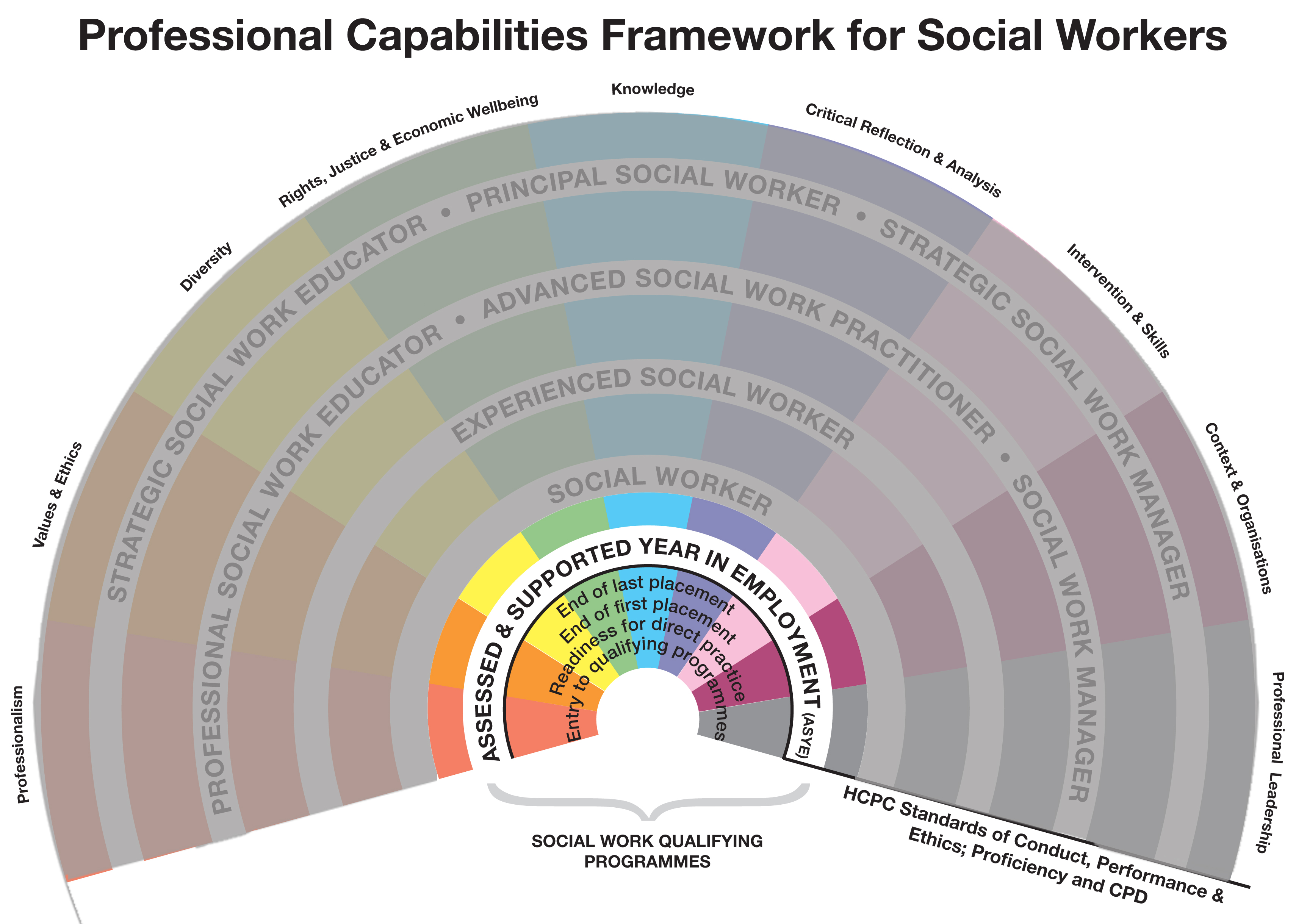ASYE Partnership
The London Boroughs of Brent, Ealing, Hammersmith & Fulham, Harrow, Hillingdon, Hounslow, Kensington & Chelsea and Westminster partnership is collaboration between employers and higher education institutions.
We have come together to contribute to leading the social work profession within our organisations in the directions set out by the Social Work Reform Board, the Munro Report and the College of Social Work.
We aim to raise professional standards of newly qualified social workers by supporting and enabling their supervisors, managers, and other educators to model professional capabilities and standards.
The partnership will provide a flexible programme of accredited courses, and other continuing professional development (CPD) activities in line with the College of Social Work's CPD strategy and the professional capabilities framework (PCF) to meet, as far as is feasible, individual development needs of staff providing support and assessment to newly qualified social workers. 
Background
The Assessed and Supported Year in Employment (ASYE) for newly qualified social workers (NQSWs) was one of the 15 recommendations made by the Social Work Task Force in 2009. The Social Work Reform Board (SWRB) has been overseeing the ASYE scheme which was jointly developed by Skills for Care and the Department for Education (DfE).
The ASYE was implemented in 2012 for all NQSW's across all sectors and services including statutory, voluntary and private. The ASYE is not compulsory for NQSW's but will be a necessity as a majority of employers are going to expect social workers to have successfully completed an ASYE before being considered for employment.
The ASYE is designed to help NQSW's to develop their skills, knowledge and capability and strengthen their professional confidence. It provides NQSW's access to regular and focused support during their first year of employment.
Assessment
Employers are ultimately responsible for the decisions about success and failure in the ASYE. They will wish to ensure that judgements and processes for assessing a newly qualified social worker's (NQSW's) work under the ASYE are:
Accurate - consistent with the expectations of the Professional Capabilities Framework (PCF) and a genuine reflection of the NQSW's performance
Valid - based on evidence reflecting the breadth of the NQSW's work throughout the year and on appropriate processes for the NQSW's
development and assessment over the year
Robust - judgements and processes are checked, confirmed and consistent within and across organisations; judgements and processes are reliable and defensible if scrutinised or challenged either inside or outside the organisation. Employers may find it useful to take advice from a range of sources, including HR colleagues.
The strength of decisions about ASYE performance is therefore dependent on effective contributions from the individual NQSW, the employer and representatives of the wider social work profession.
Evidence to be presented for assessment
NQSWs should produce evidence which illustrates their developing performance, knowledge and skills in an employment context and meets the requirements of the PCF at ASYE level. There is no fixed number or types of evidence required for success in the ASYE - the measure is the ability to meet PCF requirements in full. However, employers and NQSWs may come to an agreement about the number and types of evidence likely to meet these requirements. The following are likely to be useful evidence to show sufficient evidence of capability:
- supervision records
- direct formal observation
- work products (e.g. case records, reports, etc.)
- critical reflection
- service user feedback.
The types of evidence suggested above, taken from a range of cases, occasions and people within and outside the employing organisation, should provide a breadth of evidence over the period of the ASYE on which the assessor can make a robust judgement.
Supporting judgements and processes
While employers retain ultimate responsibility for the final assessment decision in respect of their own NQSWs, the accuracy, validity and robustness of this decision-making process may be enhanced through reflecting on the assessment judgements of other employers and reviewing with other organisations the processes through which judgements are made.
This is in line with the Reform Board partnership principles. Partnership working during the course of the ASYE as well as at the end of the year should:
- help confirm the accuracy of judgements
- assist in developing reliable and consistent processes
- reinforce elements of good practice across organisations
- contribute to a nationally consistent level of assessment at ASYE.
Employers may also be able to demonstrate consistency with professional standards through such working as well as alignment with the expectations of the Employer Standards and Supervision Framework. Organisations will have different processes leading to judgements, which will vary according to their size, depth of experience and capacity. Partnership working offers ways to support organisations in developing NQSWs and assessing their work under the ASYE.
Further information on the ASYE is available at Skills for Care ASYE




